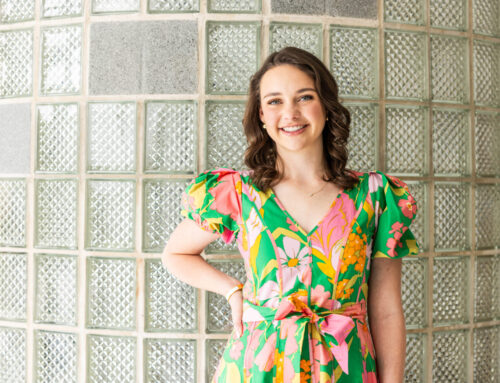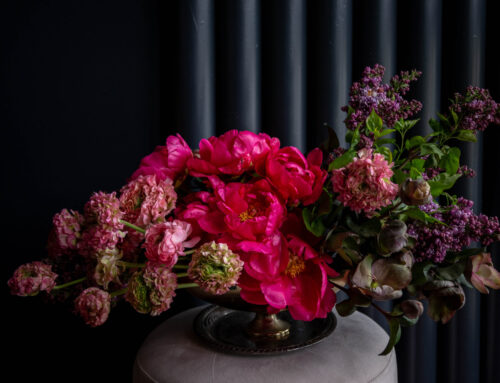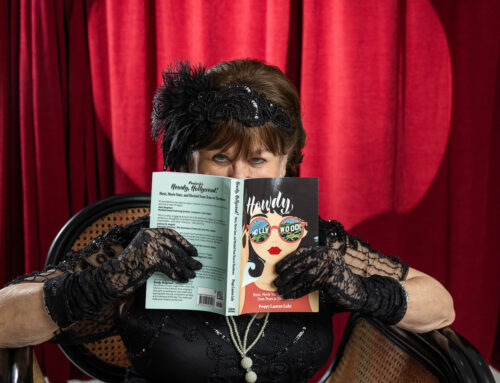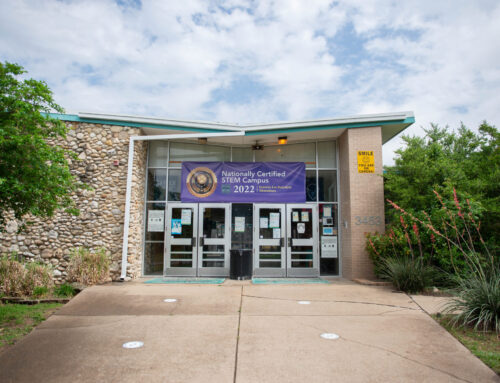
Photography by Yuvie Styles.
Jennifer Stimpson has been engaged in science since she can remember.
Her parents had successful careers in the medical field and used their knowledge to help out their community. Stimpson was inspired by her father, who was a compounding pharmacist. She is thankful to her father for being her first mentor and for first introducing her to the ins and outs of science.
She did not have to go to school to learn about science. She was able to learn while working at her family’s pharmacy.
Throughout her time in school, she knew that she wanted to be a scientist. Stimpson graduated from Dillard University with a degree in chemistry and made history as the first African American woman in history to receive an advanced science degree from the University of Northern Iowa.
Stimpson has been an educator in Dallas for more than 20 years. She taught science courses at the Hockaday School in our neighborhood and at Townview Magnet Center.
In 2022, Stimpson was recognized for her work by the American Association for the Advancement of Science (AAAS) IF/THEN Ambassador program. She was honored with her own statue featured in exhibits at NorthPark Center and the Smithsonian.
What sparked your interest in science? How did your family influence you?
I was a daddy’s girl. I was inspired by science from my father. He was my first mentor. When I was 9, he opened his own business, where he was a compounding pharmacist. As a compounding pharmacist, he had to use a variety of different equipment that mimicked what you see in a science lab. So he had beakers, he had flasks, he had different way machines, and that’s how he made his medicine. I know it sounds really cliché, but I wanted to be like my dad. I wanted to use cool things and create the way that he did.
You were the first African American woman to graduate from Northern Iowa with an advanced degree in science. What was that experience like, to be the first?
When you are the first, you don’t know it at that moment, but you are really paving the way for who comes behind you. What that taught me is what it means to truly be the only one. They don’t teach you that being a girl or a person of color in STEM is isolation. That isolation can mean that your ideas are never heard with the same conviction as others, your presence is not as welcoming as those of others, and your input is not readily received. That isolation means that there is a lesson that you have to learn. I learned how to be OK with being by myself without having a negative impact, knowing that I am smart enough, talented enough and gifted enough because science doesn’t have a color.
During your time at the Hockaday School, what was it like to be able to teach a group of young women about your passion for science?
There are so many experiences that I’ve had at Hockaday. I like to call myself a change-maker, and what I did is changed people’s opinions about what it meant to be a scientist. The narrative of empowerment already existed at Hockaday. The idea of inspiring girls to consider science is what I was able to do every day. I was a scientist before I was an educator. I made sure that the girls saw themselves in the future of science by making them understand that the wonders and possibilities of science have to include your voice.
What was that experience like as an IF/THEN Ambassador? What was it like seeing your statue for the first time?
My first reaction was “Wow! Oh my gosh.” Orange is now my favorite color since being an ambassador. I took the recognition as a call to action to continue the work that needs to be done. Making sure that girls can see themselves in the future of STEM in a variety of different ways. Yes, we all know what STEM means (science, math, technology and engineering), but what does it actually look like to be in STEM? The IF/THEN program broke down what those letters really mean. The difference between a radiologist and a technical engineer. They also had all of these different iterations of what it means to be a scientist. So it wasn’t just an acronym.
What do you like to do in your free time when you aren’t inspiring the next generation of female scientists?
I like to call myself a closeted historian. I’ve always had a strong passion for my personal ancestry. I want to know as many of my ancestors and how far back I can trace them. I dedicate time on Sundays to my own personal ancestry just to see what I can uncover. I enjoy dining. One of my favorite food is tacos. I am a hard-shell taco kind of girl. I also enjoy spending time with family and watching plays.
What’s next for you?
What’s next for me is that I am writing my own memoir about my experiences as a science teacher. I want to share what my experiences mean to me and what the future of education is all about. So I will be taking time to write my own story because I want to share what it means to be a science teacher of color and why they are important to the future of science.






